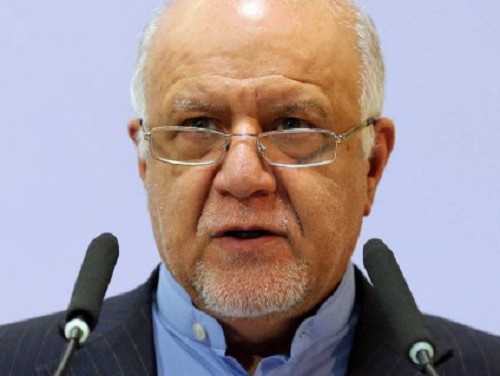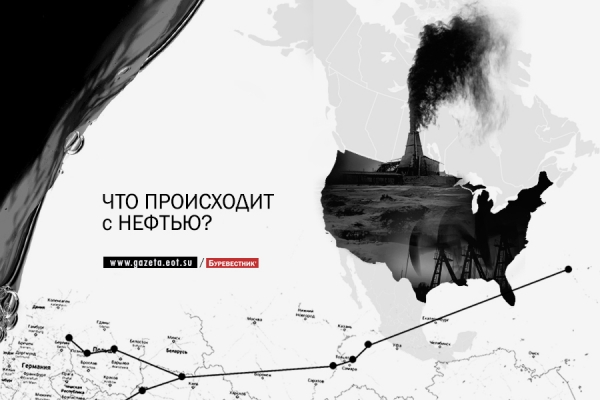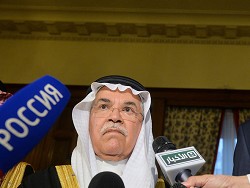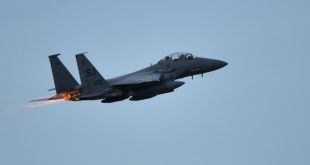
Although Saudi Arabia is ready to freeze the oil just in case, if the agreement will join Iran, it doesn’t seem very effective tactic in negotiations, considering that Iran once again rejected such a proposal.
Recall that last week Mohammed bin Salman stated that if one of the large manufacturers want to increase production, then Saudi Arabia will not miss her, and frost is possible only if you will agree to Iran.
That is, the results of the meeting of the countries-exporters in Qatar on April 17, was questioned, and the oil market reacted to the decline.
In November 2014 OPEC under pressure of Saudi Arabia refused to support prices and focused instead on maintaining market share. In the framework of the strategy of squeezing rivals the Saudis have increased production. The figure exceeded 10.5 million barrels per day, which was a new historic high.
Previously, experts have speculated that Saudi Arabia could first fix the production level of 10.2 million barrels, and then try to negotiate with Iran. Mohammed bin Salman straight text declared that Iran must “without a doubt” to participate in the deal from the beginning.
But hopes that Tehran will change your mind, were still. However, on Sunday, Iran’s oil Minister Bijan Zanganeh has rejected a proposal to cease to increase oil production. According to the Wall Street Journal, the meeting in Qatar, where the country wanted “to restrict production and raise prices”, was a complete farce.
It should be noted that on the background review Zanganeh Iran’s exports of oil and condensates exceeded 2 million barrels per day that Iran certainly does not want to endanger.
The confrontation between the two biggest rivals in the middle East doesn’t help the oil market. Global production is outpacing demand by nearly 2 million barrels per day, and the prices are at the lowest level in 10 years.
Ironically, on the eve of the Doha meeting, where many expected any agreement, other OPEC members increased oil production to the limit, flooding the market with additional volumes. And for most countries to reduce production now is almost impossible.
Interestingly, to review the crown Prince of Saudi Arabia Riyadh made it clear that he would keep production at a stable level, despite the actions of Iran. Now things have changed and it is very important from a policy perspective. Politeksperty very sensitively suggest that you listen to the words of Deputy crown Prince. He had already replaced some very large figures including the Minister of oil and head of the state company Saudi Aramco. Father bin Salman for more than 80 years: sooner or later the transfer of power in Saudi Arabia needs to happen. By this time, most key posts may be supporters of Deputy crown Prince.
As for Iran, he just follows the goal announced previously: to increase oil output to 4 million barrels a day, as it was before the imposition of sanctions. And it should be very good growth, as in the end of 2015 the volume of production was only 1 million barrels.
As noted above, exports of oil and gas condensate in Iran in March exceeded 2 million barrels per day.
Although Kuwait and Qatar support the contract on freezing, as it should stabilize the market, Iran has confused all the cards.
In addition, Kuwait has already made it clear that without Iran there will be transaction. And if no agreement will not, then, as stated by the oil Minister of Kuwait, ANAS al-Saleh: “I will sell every barrel produced”.
On the expectations of the meeting, oil prices exceeded $40 per barrel compared to $27 in January. But on Friday, the market collapsed after the comments of the Prince of Saudi Arabia.
Further dynamics will depend entirely on new messages about the freezing. It is possible that in the coming days, countries have to change the rhetoric.
Saudi Arabia currently more financial resources and the impact on the oil market. In order to achieve inclusion of Iran in the agreement, Riyadh is able to demonstrate his power, dropping prices to new lows for some time. Yes, it is unlikely to appeal to partners in OPEC, but when the Saudis listened to the opinion of other countries?
To withstand even $20 per barrel, Saudi Arabia could within a few years, although it will have to spend nearly all their reserves. For Iran, the low prices will mean a complete collapse of hopes for increased production, as in this market to find investments in infrastructure and new projects is almost impossible.







